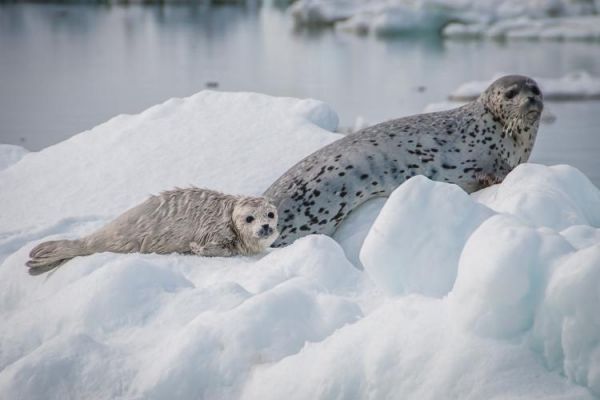A new NOAA Fisheries study finds some of the first quantitative signs that three species of seals are experiencing impacts of warming in the Bering Sea and Aleutian Islands. These three species—ribbon, spotted, and harbor seals—are all typically resilient, long-lived predators that eat a variety of prey.
In the past decade the Arctic region has undergone a rapid transformation. Temperatures rose. Sea ice extent and thickness fluctuated dramatically, reaching both record highs and lows within the past decade.
Ecological changes have been profound and relatively well-documented for fish and lower trophic (food web) levels. Scientists have observed changes in species distributions, reproductive and mortality rates, and body condition of individuals.
Continue reading at NOAA Fisheries
Image via NOAA Fisheries


